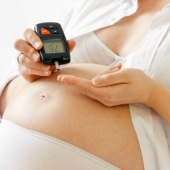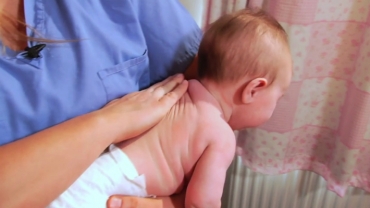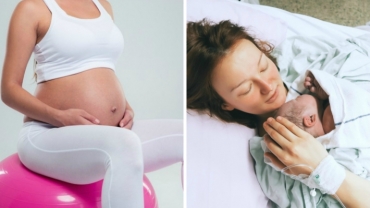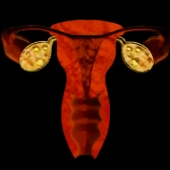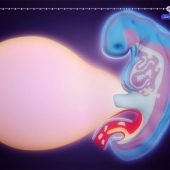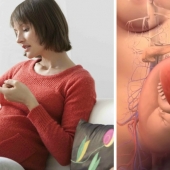A pregnant woman's body undergoes various normal physical changes that can be obvious or quite subtle. These changes are necessary to assist fetal development and prepare the body for labor.
In your first few months of pregnancy, hormones flood your body. Your baby is still tiny, but already your body is changing. Your breasts start to swell and may feel tender. Tiredness, nausea, and a frequent need to pee are common pregnancy symptoms. Breasts nay become larger and more tender because of increased levels of the hormones estrogen and progesterone. As the due date approaches, hormone changes will cause pregnant women's breasts to get even bigger to preapare for breastfeeding.
In your second trimester, your growing uterus gradually rises up out of your pelvis. You will start to feel the first flutters of your baby's movements and be showing an obvious bump by mid-pregnancy. The expanding uterus puts pressure on the bladder, urethra and pelvic floor muscles, which leads to temporary bladder control problems like frequent urination and even leaking of urine when sneezing, coughing or laughing.
In the third trimester, your growing baby pushes your intestines and stomach up against your diaphragm and lungs. That's why you might be feeling breathless, and heartburn is a common problem too. Your bladder is also under pressure. You'll be making even more trips to the bathroom as your baby drops lower into your pelvis, usually at about two to four weeks before delivery. These symptoms will ease after your baby is born. But your uterus can take a month or so to shrink back to its normal size and position.
- 17299 views

